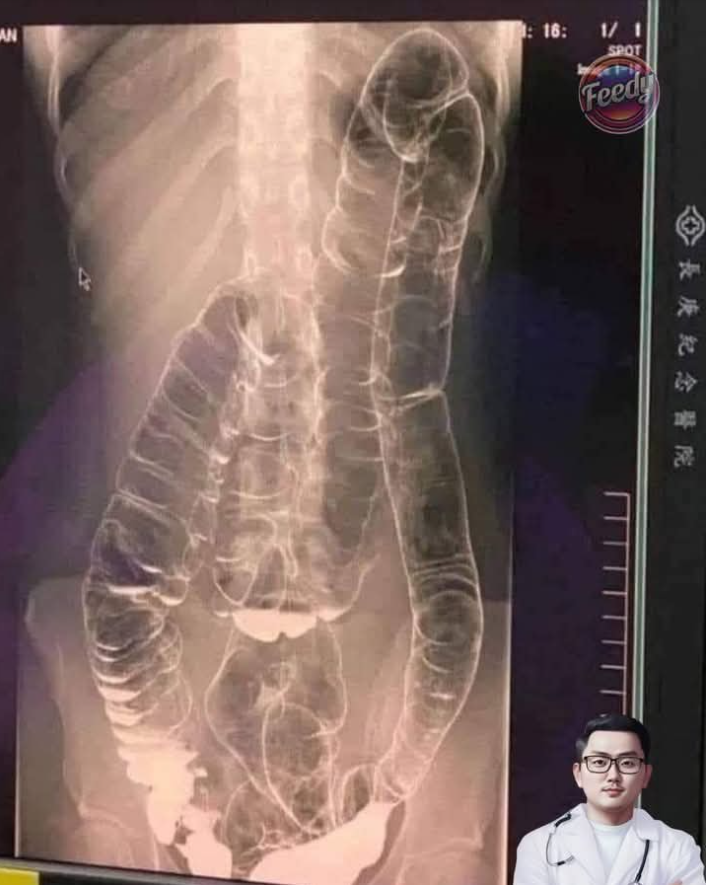Toxic megacolon is a rare but life-threatening complication where the colon becomes massively dilated (often more than 6 cm wide) and inflamed. It occurs when inflammation or severe blockage causes the colon to lose its ability to contract and remove waste, leading to bacterial buildup, infection, sepsis, or even colon rupture.
Main Causes
✅ Severe Constipation Causes:
-
Low fiber diet
-
Dehydration
-
Sedentary lifestyle
-
Overuse of laxatives
-
Opioid or antidepressant medications
-
Neurological disorders (e.g., Parkinson’s, MS)
-
Colorectal obstruction (tumors, strictures)
⚠️ Toxic Megacolon Causes:
-
Inflammatory bowel disease (IBD) – especially ulcerative colitis
-
Infections – particularly Clostridium difficile (C. diff)
-
Ischemic colitis (restricted blood flow)
-
Colonic pseudo-obstruction
-
Chagas disease (in some parts of Latin America)
Symptoms to Watch For
🟡 Severe Constipation:
-
No bowel movement for several days
-
Abdominal pain or bloating
-
Hard, dry stools
-
Nausea or loss of appetite
-
Straining or incomplete evacuation
🔴 Toxic Megacolon (Medical Emergency):
-
Sudden, severe abdominal pain
-
Swollen, tender belly
-
Fever and chills
-
Rapid heart rate
-
Dehydration
-
Confusion or weakness
-
Bloody diarrhea (in some cases)
⚠️ If you experience these symptoms, seek emergency care immediately.
Diagnosis
Doctors may perform:
-
Abdominal X-rays or CT scans to assess colon dilation
-
Blood tests for signs of infection or inflammation
-
Stool cultures to check for infections like C. difficile
-
Colonoscopy (used cautiously due to risk of perforation)
Treatment Options
🧴 For Severe Constipation:
-
Increase fiber intake (fruits, vegetables, whole grains)
-
Drink more water (2–3 liters daily)
-
Regular exercise (stimulates bowel function)
-
Laxatives (short term) – such as polyethylene glycol or magnesium citrate
-
Probiotics – may improve gut motility and flora
-
Suppositories or enemas – for immediate relief
-
Manual disimpaction – in extreme cases, done by a medical professional
🚨 For Toxic Megacolon:
-
Hospitalization required
-
IV fluids and electrolyte correction
-
High-dose corticosteroids (if due to IBD)
-
Broad-spectrum antibiotics
-
Surgery (colectomy) – if no improvement within 24–72 hours or if perforation occurs
Prevention Tips
-
Eat a high-fiber diet (25–35 grams/day)
-
Stay hydrated
-
Avoid excessive laxative use
-
Manage underlying GI conditions
-
Treat infections like C. diff promptly
-
See your doctor if you go more than 3 days without a bowel movement accompanied by pain or swelling
When to See a Doctor
Don’t ignore persistent constipation, especially if it comes with:
-
Severe pain
-
Blood in stool
-
Sudden weight loss
-
Vomiting
-
Swollen abdomen
Early detection can prevent complications like megacolon and reduce the risk of emergency surgery.
Conclusion
Severe constipation is often manageable with diet, hydration, and movement — but when neglected, it can spiral into a dangerous condition like toxic megacolon. The key is to listen to your body, act early, and never ignore drastic changes in bowel function. If in doubt, always consult a healthcare provider for proper evaluation and treatment.
